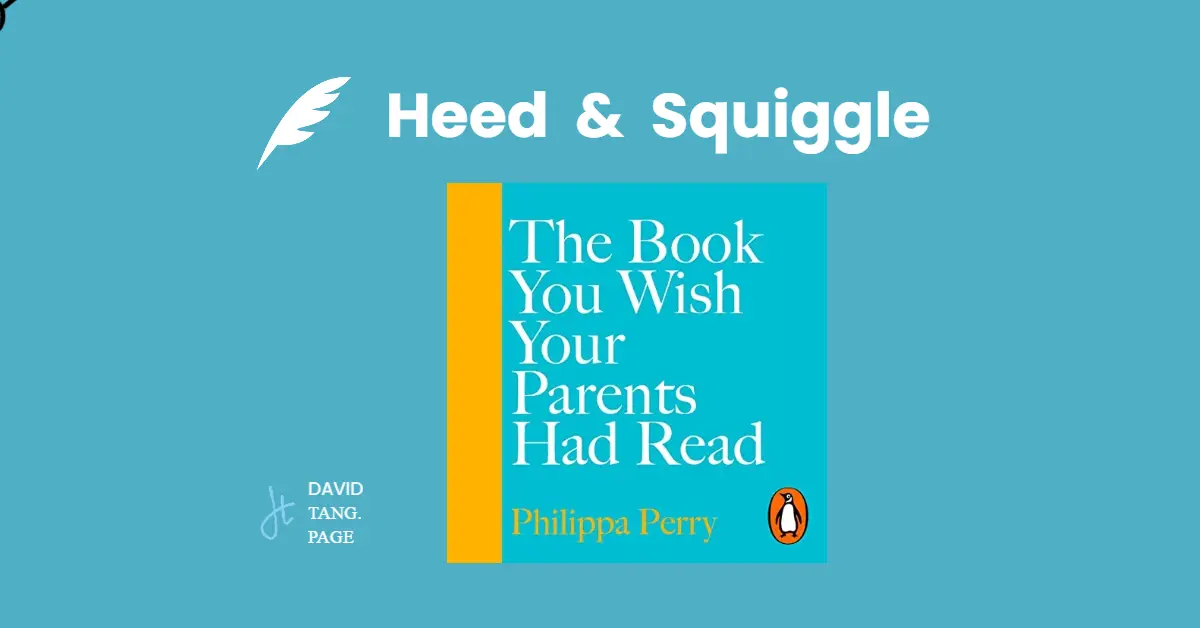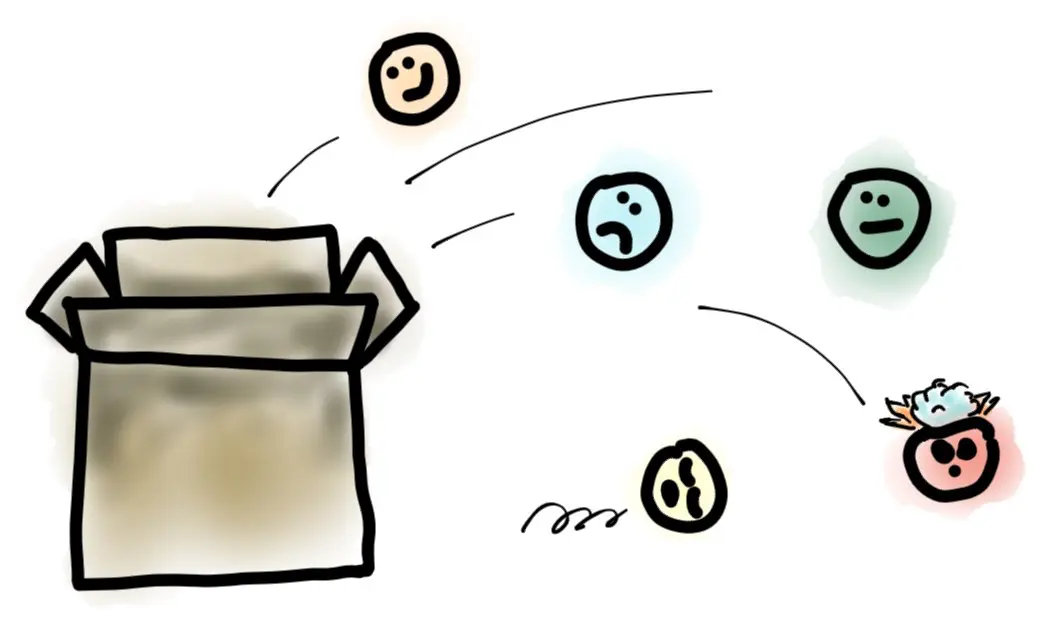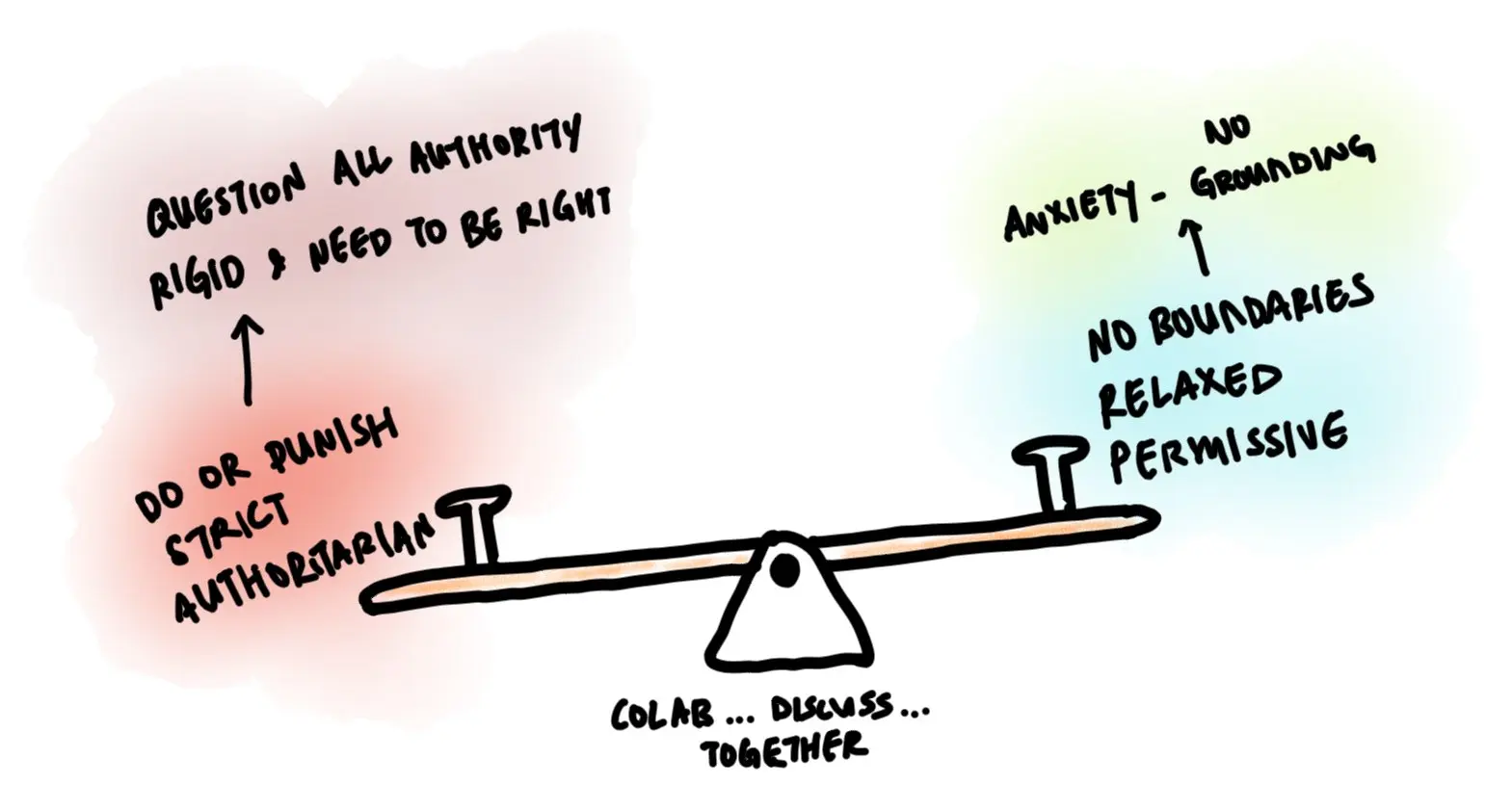Audiobook Review - The Book You Wish Your Parents Had Read
My take on how this book shaped my parenting. Get thinking about Intergenerational relationships, from grandparenting to children. Read my commentary and doodles.

A wonderful listen by Philippa Perry, and even better that it's narrated by the author herself. This is a book that does as its title suggests - reflecting on the parenting that we received.
TL;DR - Would recommend this book, as a parent myself. Especially in the absence of excellent parenting role models.
Let's dive into my main thoughts on how this book changed me.
Key Takeaways
Three concepts struck me as a young parent. I am actively testing them out. I doodle them below!
2) Emotional containment
3) Types of parenting
1️⃣ Rupture and repair
We live, breathe, and grow in an imperfect world. As much as we want to be the best parent, unknowingly we may sometimes brush off 'tiny concerns' or have lapses of attention towards our children.
We live in an increasingly noisier and busier environment. Challenges that simply did not exist in our parents' lifetime are currently evolving rapidly in this era - pulling attention away from the little ones. (read: climate change, pandemic risks, global destabilization)
Not only that, with electronic working and more contact hours - this takes away from the focus of being sensitive to the needs of our children.

The 'rupture and repair' concept does give me some comfort. What it means is there will be times when my actions unintentionally hurt my relationships. But this damage can be identified and then repair actions taken.
Phillipa has a story about an actual parental repair effort that takes place many years later - and it still works. Some quick pointers:
- Repairs are still as effective as long as taken at some point. Though earlier could be better, we sometimes miss this and can always come back to it.
- Repairs are an important step in teaching our children to make terms with difficult or imperfect situations that they might encounter later in life.
2️⃣ Emotional containment
This concept is about being a vessel (literally) for the emotions of our children. It can come off as abstract, so let me explain.
Children can intensely experience emotions. When it is their first time, it can be overwhelming. Emotional containment is a way for a mature adult to hold the child's emotion and return it to the child in an age-appropriate way.
Think about it as holding your child's hand when crossing the road. It is about that guidance, just in the emotional sense. Also, it gives the child an example of behavior to model.

It was theorized by Wilfred Bron in 1953 that depriving a child of this learning opportunity leads to emotional problems down the line. Recent evidence from prolonged isolation throughout the COVID pandemic has shown the various negative effects of growing up without emotional containment.
3️⃣ Types of Parenting
This part of the book makes me reflect on how I was brought up as a child. And weirdly helped me meld the above two concepts together to come to terms with who I am now.
Parents have a large influence on the way their children grow up and their personalities, whether they like it or not. Here are the three broad styles of parenting that helped me think about both my own parents and how I like to be to my own child.

Strict / Authoritarian - In the red corner, the stereotypical Asian tiger-mum style. You'd best get your bedroom organized and it was expected yesterday!
Pro: Provides structure
Con: Possibly rebels against future authority
Permissive / Lax - In the blue corner, a chilled-out parent. Take off as you like and stay out until you have enough fun.
Pro: Relaxed home environment
Con: Depends on child to set own boundaries, can get lost in or feel anxious without any clear structure
Collaborative - Maybe the hardest but a balance of the both above. Work together to come up with family rules by negotiation, and explanation in a partnership. Can take longer with more back and forth, and can't be executed when the child is too young. This way scales in the future to allow the child a good model of cooperating within school or work environments.
More on the writer
Philippa writes from her extensive experience as a psychotherapist. With decades of experience dealing with family relationships, she distills key learnings in the form of real-life stories.
Apparently, she is trained in 'intergrative psychotherapy'. This is one of the 400 frameworks that exists out there for psychotherapy. While this field is new to me, I particularly like how it takes a flexible approach to several perspectives from various frameworks out there. 1
It is a way of delivering psychotherapy to a wide range of situations. Staying away from the 'one-fits-all' approach. Read on to see how I applied these ideas.
David's takeaways
With the arrival of my son, I was expecting both my in-laws and parents to take up a larger part of life.
It was an adjustment for both my wife and me, and this book was a pickup that I needed for this season.
The inter-generational pearls of wisdom shared helped me reflect on my own relationships. This book has also introduced me to 'better ways' of parenting, which I had never been exposed to before.
I should clarify better as meaning that: new or different approaches to parenting that I have never experienced myself. I hadn't got that throughout my childhood. This book helped to open my eyes to ways which I might not have known.
Combining the emotional containment concept with collaborative parenting is what I am trying out. I am pleased to see my child getting a grasp of new concepts and feeling more confident in handling emotional moments.
I am also more in tune with my own emotions. It has helped me to understand myself on a different and deeper level. Instead of breaking down or burning out, I can better gauge personal energy levels. So, I can take restorative actions before a crash-and-burn.
Not only does Philippa write about strategies and recommendations, but she also provides a clear explanation or rationale. This makes it easy to take on new concepts, which I am building up with my own family.

The Book You Wish Your Parents Had Read by Philippa Perry
(and Your Children Will be Glad That You Did)
Definitely got me thinking, and reflecting on my own parenting strategies. Narration is top-notch. 8 hour 22mins audiobook.
References
1 Zarbo, C., Tasca, G. A., Cattafi, F., & Compare, A. (2016). Integrative Psychotherapy Works. Frontiers in psychology, 6, 2021. https://doi.org/10.3389/fpsyg.2015.02021
